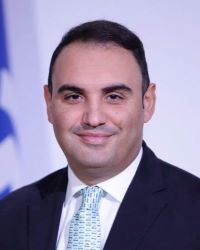Fictitious employment in the public administration and photographing the vote are present in Albania. Manipulating elections too. This panorama discourages young Albanians from engaging in politics.

Belind Kellici
In the Albanian lexicon, the phrase “new politician” began to be used in the 90s, with the advent of pluralism. The Student Movement of December 1990 brought several young people to the political scene. The desire for immediate democratic changes and the justified impatience of Albanians to reach European standards turned into a curse for them. Inexperienced, the young people of that time, left disillusioned with active politics, creating the public perception that little had changed in Albanian politics. This frustration became a popular refrain in any political conversation. At the same time, it encouraged Albanians to want to see more young people in leadership roles. So much so that a 29-year-old man was elected prime minister of the country. His successor a 30 year old.
This movement was a revolution in the political culture in which strong provincial ties prevailed, which also brought the first party strongholds in the country. Today, the political picture shows the blood ties. The current ministers and many of the central figures of the ruling party are related by blood to the former bureaucrats of the communist period. This makes it difficult for young people with leftist beliefs to climb to the top of politics. Therefore, it remains for the democratic opposition to offer a more comprehensive model for young Albanians.
In 2005, the Policy Orientation Committee (POC), a board of mostly young professionals associated with the Democratic Party, signaled that it was time for change. The government of 2005 had many young people, until then unknown in political life.
This retrospective highlights some of the reasons why young Albanians do not believe in politics. But the more dissatisfied we are with politics, the more we deal with politics. This culture continues with the positive change that politicians are now openly commented on, scolded on social networks, and even become memes. We are cynical towards our politicians. We laugh at them, when we should be more demanding, protest more and participate massively in the elections.
Politics is the biggest employer in Albania. This makes the connection of Albanians with it vital. Militancy in the party gives you a leadership position in a bloated public administration, largely controlled by the ruling party, without fulfilling any professional criteria. The ruling party can even give you a salary every month without working a single day. You just have to be loyal to her. Fictitious employment in the public administration and photographing the vote are present in Albania. Manipulating elections too. This panorama discourages young Albanians from engaging in politics. Media access for young politicians is controlled by party leaders, often sponsored and scripted. The use of young people as political decorum has hit their credibility. The opportunity to refute the false information that targets young people in politics is limited. Social media remains the only space for this category. Another phenomenon, borrowed, is tokenism. Young people in leadership positions are used as bait to recruit their peers into the party. A discouraging role model for young people with political ambitions. Political indoctrination is so far from reason. So much so that in the student protests of 2018, many middle-aged and elderly parents supported the government and repeated its anti-youth rhetoric. The prime minister called the young people “unprofessional”, “lazy” and the protests “excuse to leave school”. Parties founded and led by young people have not passed the electoral threshold. Therefore, young people tend to join big parties. Albania is being depopulated, especially by the educated youth, leaving the future of the country to the old political caste, which has made sure that the diaspora does not have the opportunity to vote.
Belind Kellici was the Chairman of the Youth Forum of the Democratic Party in Albania, for the years 2015-2022. He is currently a deputy of the Democratic Party



Leave A Comment